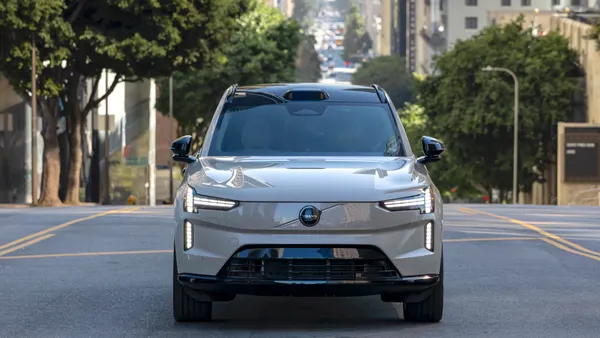Editor's note: This story is part of the WardsAuto digital archive, which may include content that was first published in print, or in different web layouts.
Russ Darrow's first store was a Chrysler dealership he purchased in 1965 when he was 25 years old in West Bend, WI. Now he is the incoming chairman of the American International Automobile Dealers Assn.
Out of his 15 dealerships, 11 are import stores. The Darrow group ranked 85th on last year's Ward's Megadealer 100 with $410 million in total revenue.
His focus the next few months, at least, is less on matters affecting import dealers only, but on breaking the credit malaise gripping the entire country — a problem plaguing every dealer.
“It's obviously been a year like none other we've ever seen,” Darrow says. “As it relays to AIADA, Detroit's problems are America's problems. We need to stress the urgency of increasing sales for everybody.”
One of his goals is to work to lessen the pressure on dealer inventories while helping dealers find ways to increase showroom traffic.
Dealers can't sell cars because people are concerned about the economic recession and the ones who want to buy, are having trouble getting financed in many areas of the country.
As a result, dealer inventories are swelling causing floor plan lenders to enforce or enact tough policies of paying down the principal owed on inventory.
“Unless we start unclogging the inventories, dealers are going to continue to be at risk,” Darrow says.
As he takes the reins of AIADA from South Carolina dealer Jim Hudson this year, Darrow is putting together a list of priorities for the association.
One is lobbying the government for a consumer stimulus package that provides a $1,000 - $2,000 cash rebate (not a tax credit) for a 60-day period to every individual and small business who buys a new vehicle of any make or model, including imports. The government can then lower the incentive for the next 30 days, Darrow says.
Darrow believes the incentive will get people into the showroom buying vehicles driving down inventory levels. At the same time, provided finance firms begin lending to dealers again, dealers will be able to order new inventory pushing the industry back to a 12 million unit sales year.
“That's not all that great,” Darrow admits. “But at least it's not at the 10 million depressed level with all of the resulting unemployment.
“Whether you're a third-world country or the U.S., nothing happens until you sell something. That's how money changes hands, and we're not seeing that happen right now.”
Darrow also wants to shift the immediate attention off bail out and bridge loan activity to a conversation about consumer and dealer financing, which is where our attention needs to be, he says.
First, the government needs have more oversight on how the initial $300 billion bailout money was spent, Darrow says.
“Obama's administration needs to change the rules a little bit,” he says. “It needs to force more transparency from the banks that received that money.” Darrow contends the money banks received is not being used for its intended purpose — lending money to customers and small businesses.
Darrow suggests setting a dollar amount or percentage of the money banks received that has to be used for loans.
“In the past we always talked about the trickle-down effect,” Darrow says. “That's not working now. Those funds need to be blown down. It needs to get into the hands of small businesses quickly.”
He also wants to see GMAC LLC and any other captive finance firm that obtains bank-holding status to be required to use some of the money to reestablish the captive financing business. For that to happen, the large New York and international-based firms need to help further the process by discounting the money they lend as well as return to securitizing the loans the smaller institutions want to write.
Banks also have to return to leasing if sales are to rebound, Darrow says. “Right now, leasing represents 12%-14% of total new-vehicle sales for all brands,” he says. “Last year, it was 20% for GM and 25%-30% for Chrysler.”
Darrow, during his interview with Ward's, refrains from talking much about his business, but did say he made some adjustments last year because of the recession, including selling four franchises late in 2007. His group includes Toyota, Scion, Honda, Mitsubishi, Kia, Suzuki and Nissan, along with finance and fleet companies. The firm sold more than 15,000 new and used vehicles in 2007.
Darrow has been involved politically for a long time, playing an active part in AIADA along with an unsuccessful run as a republican for a U.S. Senate seat in Wisconsin in 2004.
Darrow has a keen sense of humor and will be a lively and vocal advocate this year for the import association.









